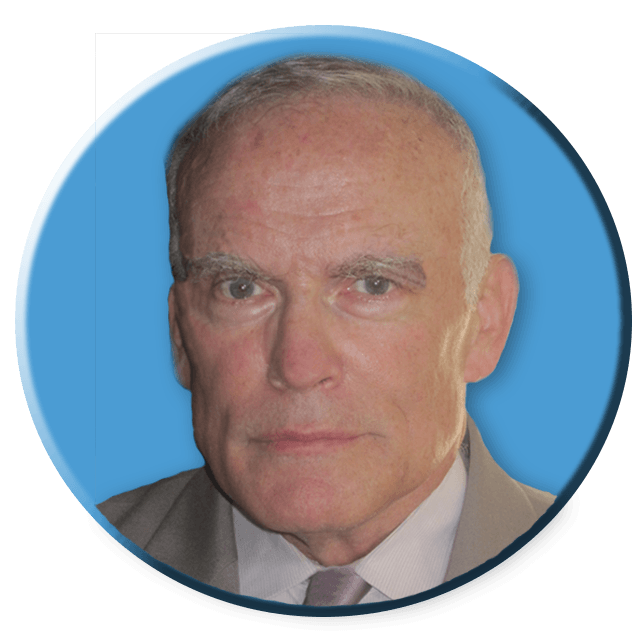WHO REALLY DESERVED TO BE TIME'S "PERSON OF THE YEAR?"
James G. Zumwalt / December 18, 2019
World Net Daily ...
A critic of Time magazine's selection of Swedish climate activist Greta Thunberg as its 2019 "Person of the Year" (PoY) addresses why she was chosen and what it suggests about the publication's future. The insights of Norwegian author Onar Am on the matter are shared herein. But his comments also raise the need to address why Time, for nine years now, has failed to consider a most deserving PoY candidate.
Not only did an earthshaking event occur back then that continues to play out today, but it will continue to do so for millennia to come. Time's failure to select this individual is most telling not only about the publication but about the PoY candidate as well.
Am proffers that Time's selection of Thunberg may well signal the old media's dwindling influence due to the internet. He argues while such a title usually has been reserved for key figures in world-changing events, almost with an "aura of desperation the title is given to a teenager fronted as a child soldier for climate catastrophism by grown-up, radical environmentalists."
Am notes, in the past, the title went to real movers and shakers, regardless of whether the change they ushered in was positive or negative. It included the likes of Adolf Hitler, Josef Stalin, Winston Churchill, Martin Luther King Jr., etc. Thus, the selection focus has been on one's influence and not on one's morality. But, Time has silently transitioned from the former to the latter, evidenced by its 2017 selection of "The Silence Breakers" of the #MeToo movement and its 2018 selection of "The Guardians" for journalists facing persecution for their reporting.
While the 2017-2019 PoY winners all briefly shared the world news spotlight, Am suggests Time now seeks to honor moralists rather than influencers despite a readership seeking to recognize the latter: "Time published the result of its online reader poll, which showed that the readers have a far better sense of significance than do the magazine's editors.
According to Time, more than 30% voted for the Hong Kong protesters, while only 4.5% supported the climate strikers. People recognized the obvious: The protests in Hong Kong are historic and may alter the course of world politics."
Am's bottom line analysis is that one who manages to obtain 15 minutes of fame is unworthy of the title over one with a track record of global influence or impact. The international media gave Thunberg her fame, which Time's selection will now undoubtedly extend a bit longer. But Thunberg's fame will soon prove fleeting, much like it has for Florida school-shooting-survivor-turned-gun-control-activist David Hogg despite a U.S. media campaign that spotlighted him relentlessly in 2018.
A global-impact incident occurred nine years ago this month in Tunisia.
After police arbitrarily seized the vegetable stand of Arab street vendor Mohammad Bouazzi for having no license to operate it, Bouazzi set himself on fire. Dying days later, Bouazzi became a martyr, triggering what became known as the Arab Spring – which is still being felt today. Bouazzi's act of self-sacrifice resulted in regime change, not only in Tunisia, but in other countries as well.
While 9/11 should remain a perpetual wake-up call for America about the threat of "weaponized" Islam, so too should the Arab Spring, which still is playing out in places like Syria, Iraq, Lebanon and Afghanistan.
Although Bouazzi's self-immolation impacted upon the Middle East, his sacrificial act undoubtedly was more one generated by personal frustration than by hoping to have such an impact.
The unintentional launch of the Arab Spring provided Time with the opportunity to put someone on its PoY cover whose ideological influence has created tremendous fallout – albeit a person whose likeness will never so appear, despite an ideology that has influenced Muslim-on-Muslim as well as Muslim-on-non-Muslim violence for 1,400 years;
...despite an ideology responsible, over the past nine years, for hundreds of thousands of deaths in the Middle East and, by virtue of Syria alone, triggering the world's largest wave of refugees to Europe since World War II;
...despite an ideology that caused America to defend itself in 1801 against Muslims in the first war it was forced to fight as an independent nation and, today, causes us to fight our longest war in history;
...despite all this we will never see the likeness of Prophet Muhammad displayed as Time's Person of the Year.
The reason for this is simple: Islam prohibits any display of the likeness of Prophet Muhammad, under the most intolerant penalty of death. We need only look at the global response of the Muslim community to the decision of newspaper editors in Denmark to publish cartoons of Muhammad to see how such publication sets off an emotional powder keg.
As Am suggests, Time continues to make itself irrelevant with PoY selections like Thunberg's. In order to recapture relevancy, and as Middle East conflicts will continue to rage on for generations to come, perhaps Time should consider choosing Prophet Muhammad as its next PoY. In the unlikely event this happened, we should not be surprised if it opted for a self-ascribed moralistic approach.
As such, we would see a blank cover, save for the words "Prophet Muhammad, Person of the Year," so as not to risk offending an intolerant Islam.
